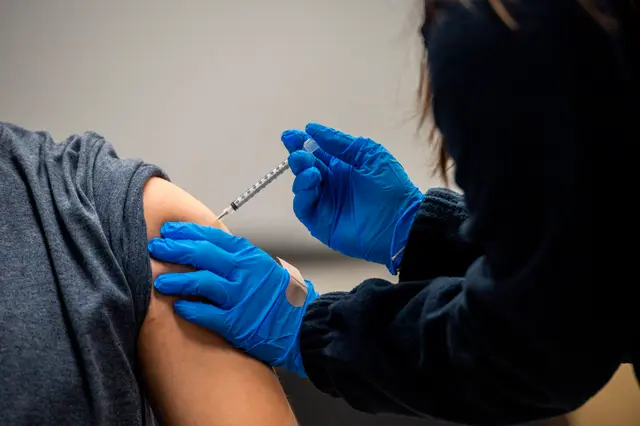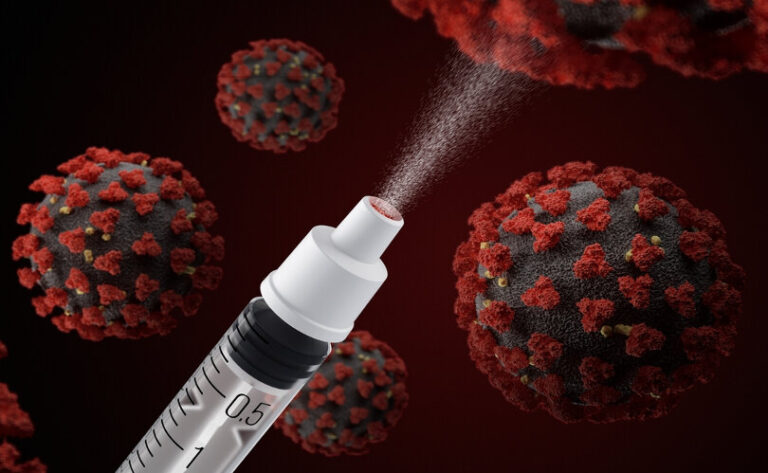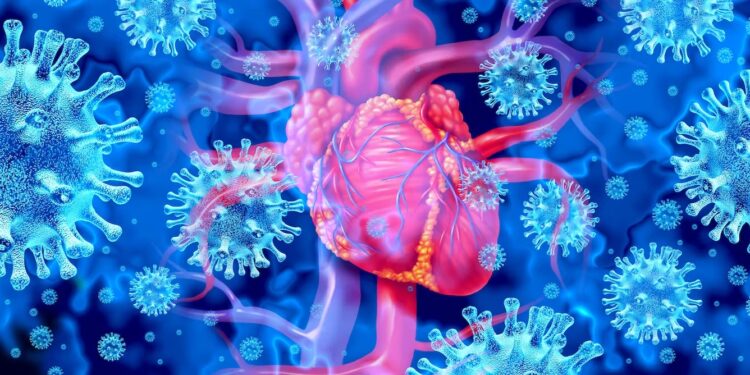Repeated COVID-19 Vaccination Weakens Immune System: Study

According to a new study, repeated COVID-19 vaccination weakens the immune system, potentially making people vulnerable to life-threatening conditions like cancer.
Multiple doses of the Pfizer or Moderna COVID-19 vaccines result in higher levels of IgG4 antibodies, which can provide protection. According to the researchers, a growing body of evidence suggests that “abnormally high levels” of the immunoglobulin subclass actually make the immune system more susceptible to the COVID-19 spike protein in the vaccines.
They cited mouse studies that found multiple boosters on top of the initial COVID-19 vaccination “significantly decreased” protection against both the Delta and Omicron virus variants, as well as testing that discovered a spike in IgG4 levels after repeat Pfizer vaccination, indicating immune exhaustion.
According to the researchers, studies have found higher levels of IgG4 in people who died from COVID-19 than in those who recovered, and the levels have been linked to another known determinant of COVID-19-related mortality.
A review of the literature revealed that vaccines against HIV, malaria, and pertussis all stimulate IgG4 production.
“In sum, the COVID-19 epidemiological studies cited in our work, combined with the failure of HIV, Malaria, and Pertussis vaccines, constitute irrefutable evidence demonstrating that an increase in IgG4 levels impairs immune responses,” Alberto Rubio Casillas, a researcher with the biology laboratory at Mexico’s University of Guadalajara and one of the new paper’s authors, told The Epoch Times via email.
In May, the journal Vaccines published the paper.
Advertisement – Continue reading below
Officials from Pfizer and Moderna did not respond to requests for comment.
In their vaccines, both companies use messenger RNA (mRNA) technology.
Dr. Robert Malone, who helped develop the technology, said the study demonstrates why he has been warning about the dangers of repeated vaccination.
“I warned that more jabs could lead to what’s known as high zone tolerance, which includes the switch to IgG4 as one of the mechanisms.” And now we have data that clearly show that’s happening in the case of this as well as some other vaccines,” Malone, who was not involved in the study, told The Epoch Times.
“So it’s basically validating that this rush to administer and re-administer without having solid data to back those decisions was highly counterproductive and appears to have resulted in a cohort of people that are actually more susceptible to the disease.”
Potential Issues
According to the researchers, the weakened immune systems caused by repeated vaccination could lead to serious problems such as cancer.
“Increased IgG4 synthesis due to repeated mRNA vaccination with high antigen concentrations may also cause autoimmune diseases, and promote cancer growth and autoimmune myocarditis in susceptible individuals,” the researchers wrote in the paper.
Myocarditis is a type of heart inflammation caused by the COVID-19 vaccination, with young males being the most vulnerable.
According to the researchers, potential long-term consequences of repeated vaccination include vaccinated people who become infected developing more severe cases of COVID-19.
“Without an adequate protection level, even the new Omicron sub-variants (considered as mild) could cause severe multi-organ damage and death in immuno-compromised individuals and those with comorbidities,” according to the researchers.
Vaccinated people, according to some studies, have a higher risk of infection than people who have natural immunity or post-recovery protection. One recent study, published in the journal Open Forum Infectious Diseases in April, discovered that each additional dose increased the risk of infection.
According to Malone, the immune system lacks the ability to respond to antigens, or foreign substances, as a result of increased IgG4 levels.
Malone suggested that future research could include following vaccinated patients over time and comparing their antibody profile to that of a group of naturally immune people. Casillas suggested that additional testing could include in vitro studies or animal experiments.
A cautious approach is required.
The new study shows that repeated vaccination “should be approached with caution,” according to the researchers.
After years of promoting repeated shots, some countries have recently halted or slowed recommendations for COVID-19 vaccination because data show the vaccines provide substandard protection against infection and short-lived protection against severe illness. For example, the United States stopped recommending boosters for everyone and reduced the primary vaccination of the Moderna and Pfizer vaccines from two to one dose.
Nonetheless, some health-care organizations are shifting toward a model based on the approach to influenza vaccination. This would entail selecting updated vaccine compositions aimed at targeting the circulating COVID-19 strains each year, and recommending that certain groups, or virtually everyone, get an annual shot.
In May, the World Health Organization stated that the composition should be updated to emphasize the XBB.1 Omicron subvariant “in order to improve protection.” The Food and Drug Administration’s Advisory Committee is scheduled to meet in June to discuss whether vaccines should be updated for the 2023-2024 “vaccination campaign.” Many countries have already phased out the old Moderna and Pfizer vaccines in favor of shots that target the BA.1 or BA.4/BA.5 Omicron subvariants.
Dr. Malone was misquoted in an earlier version of this article. He claimed that repeatedly boosting people was counterproductive. The Epoch Times apologizes for the error.





